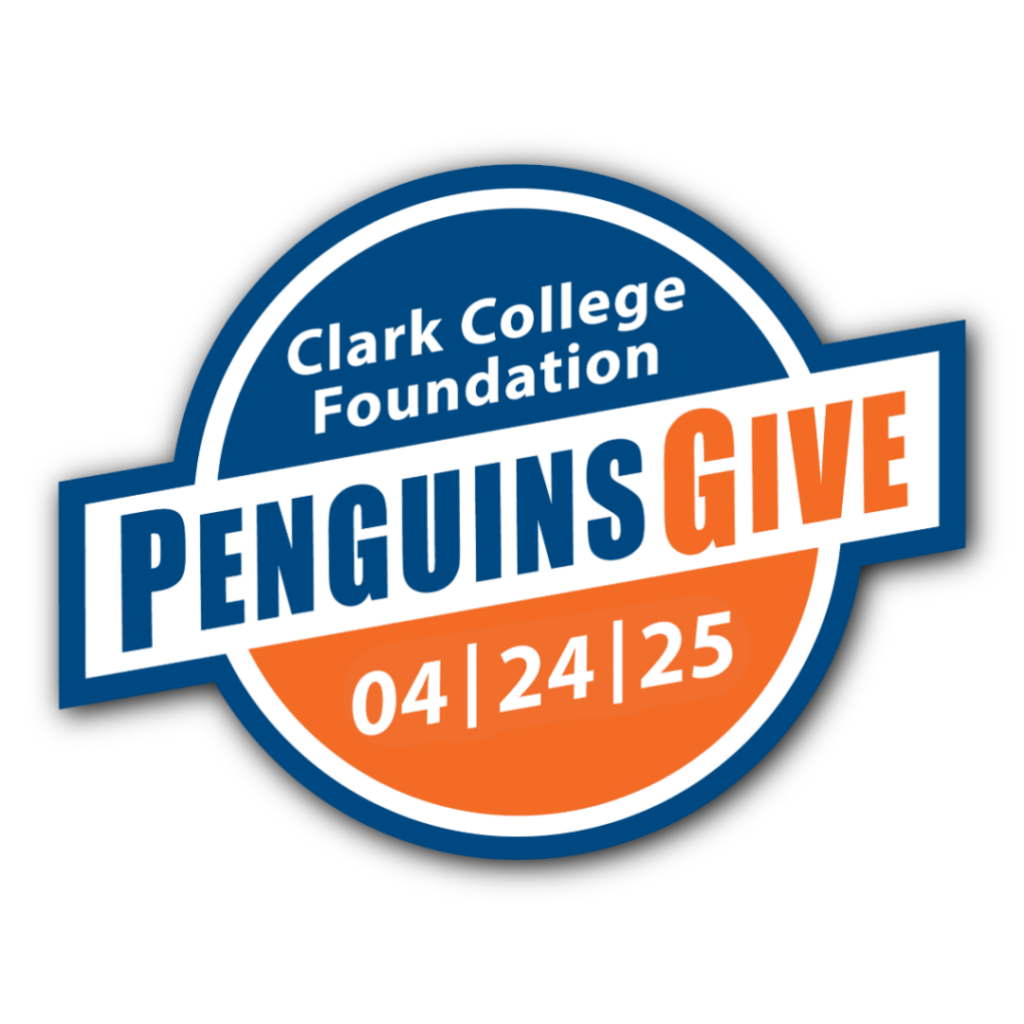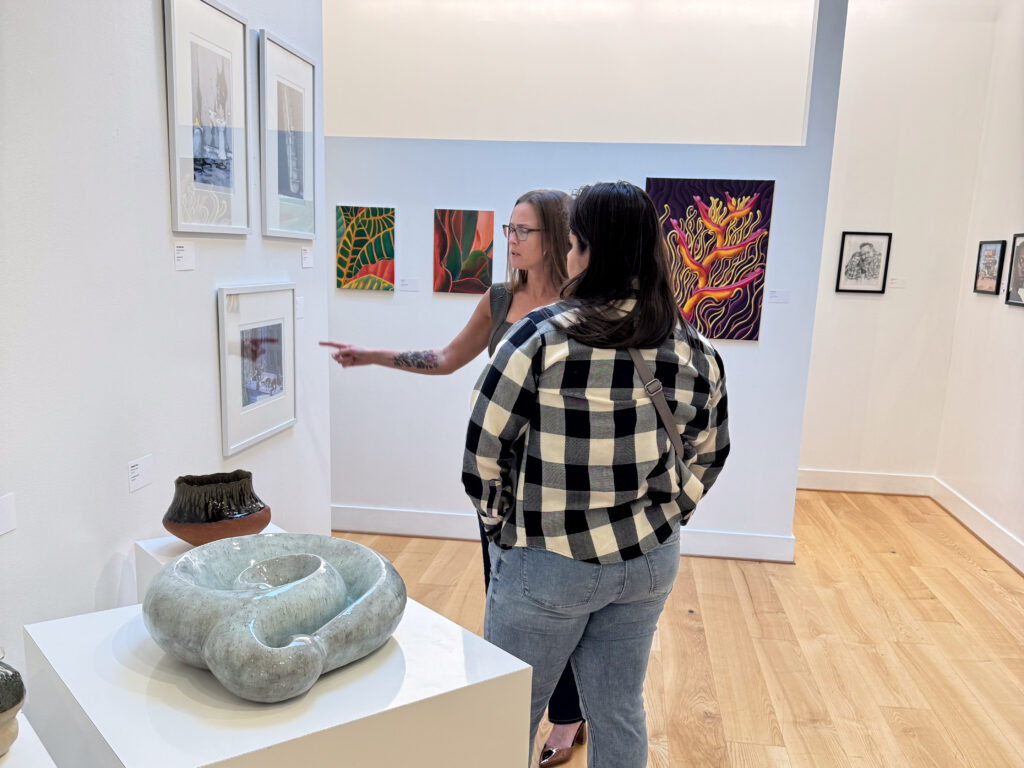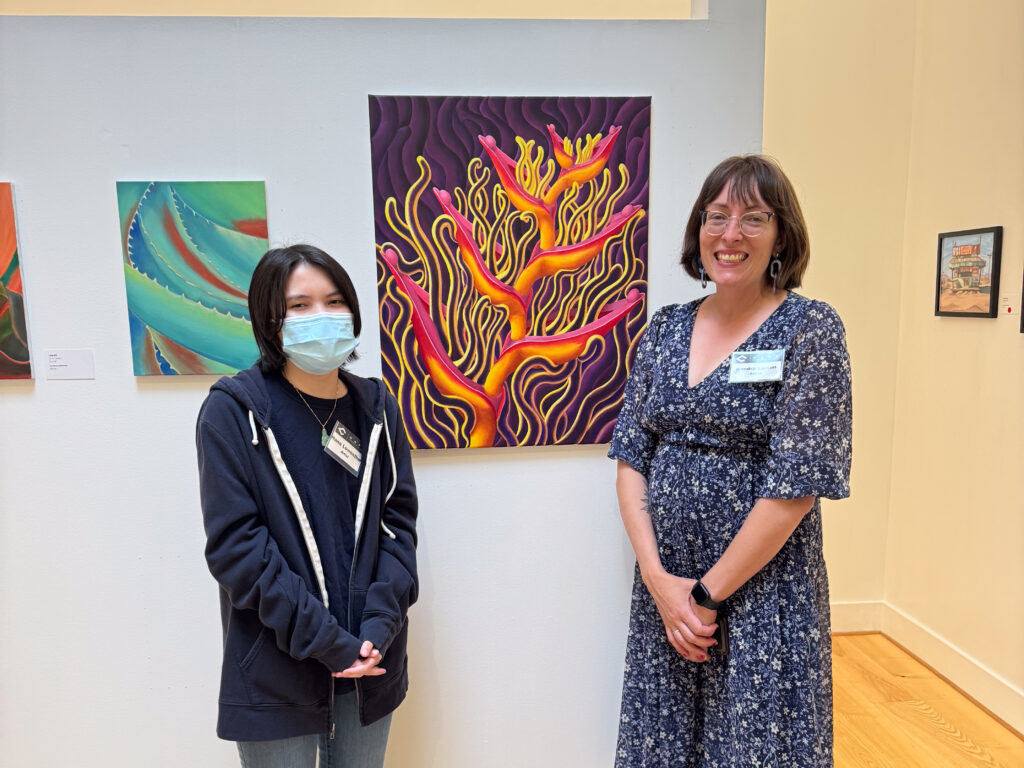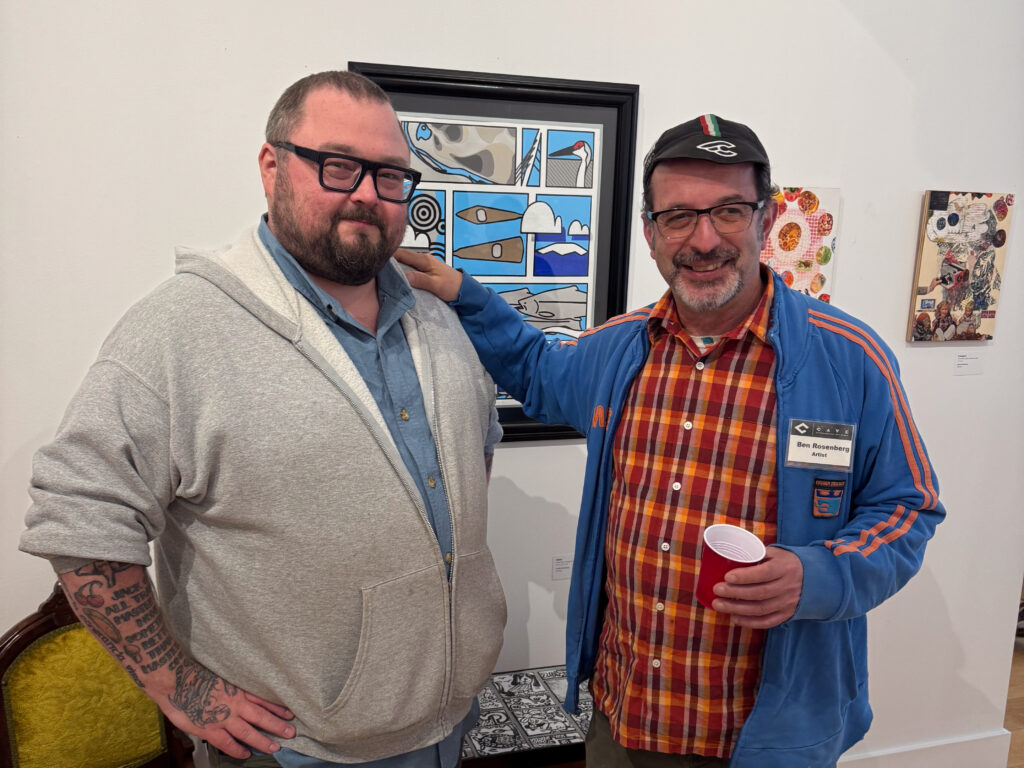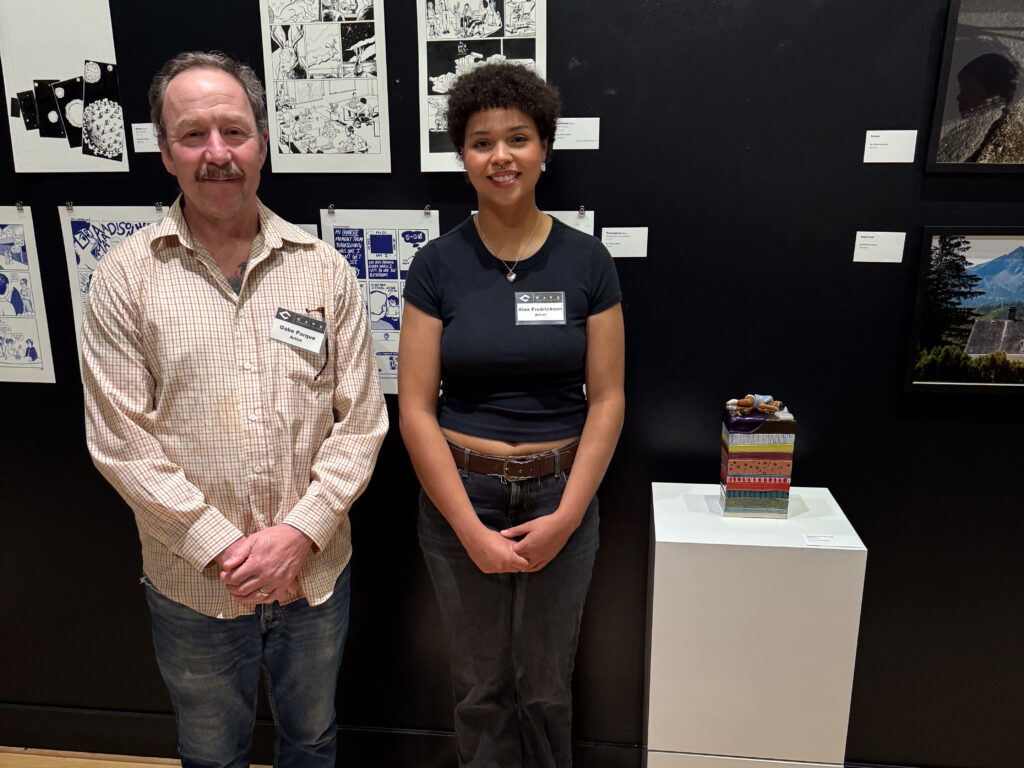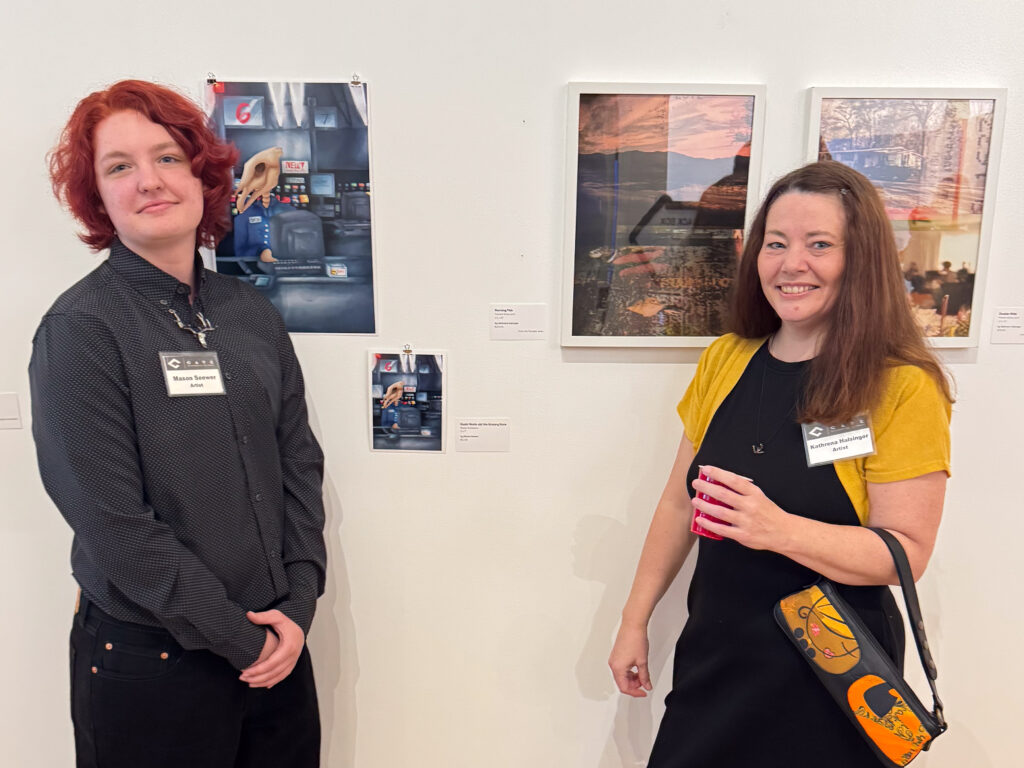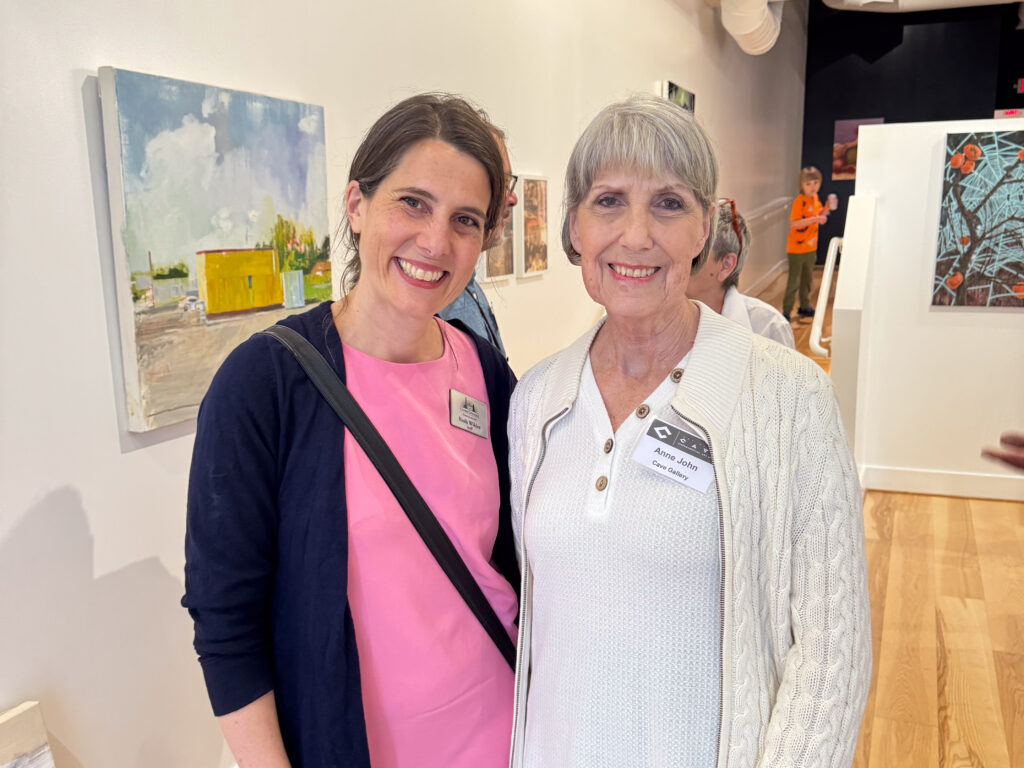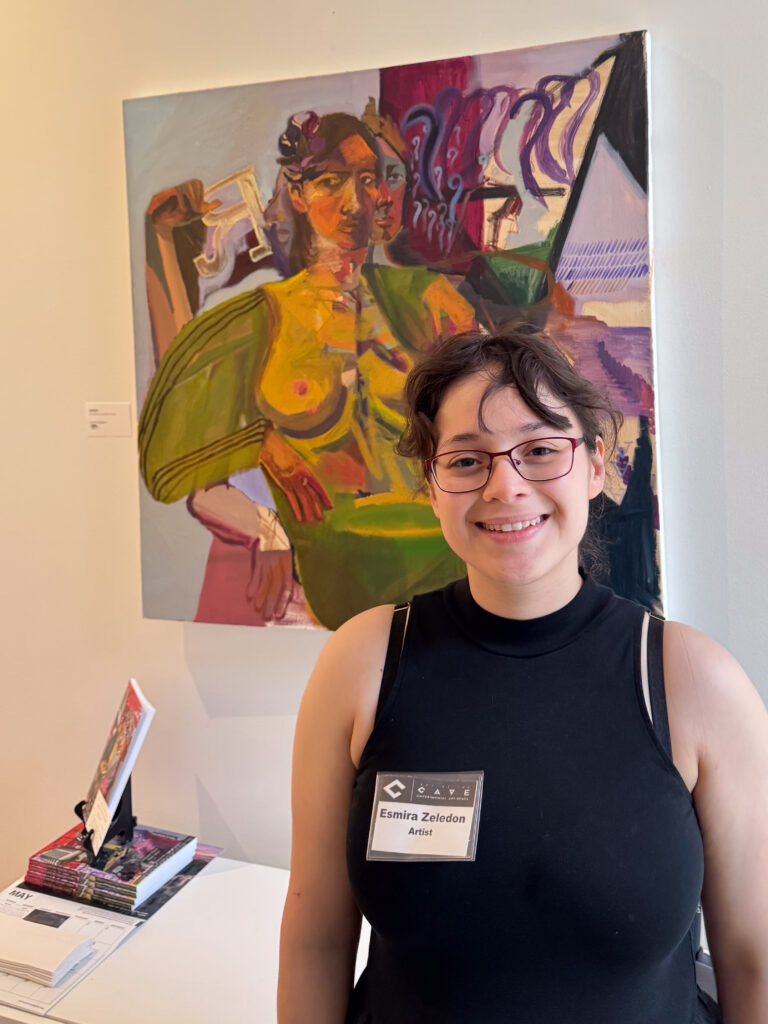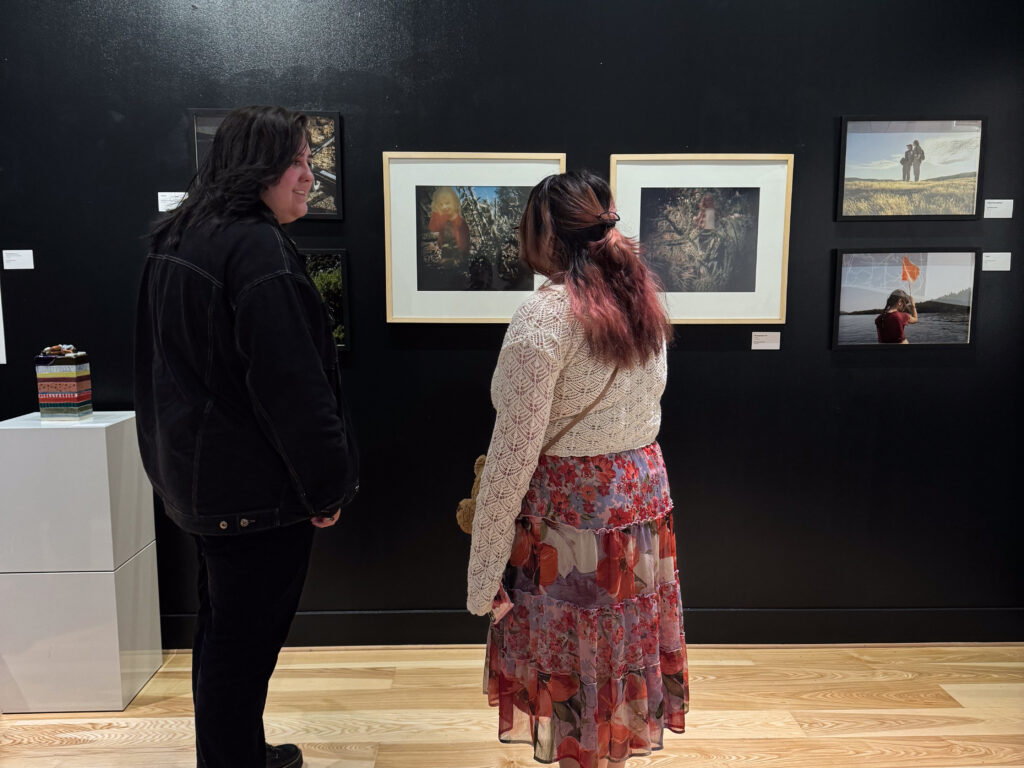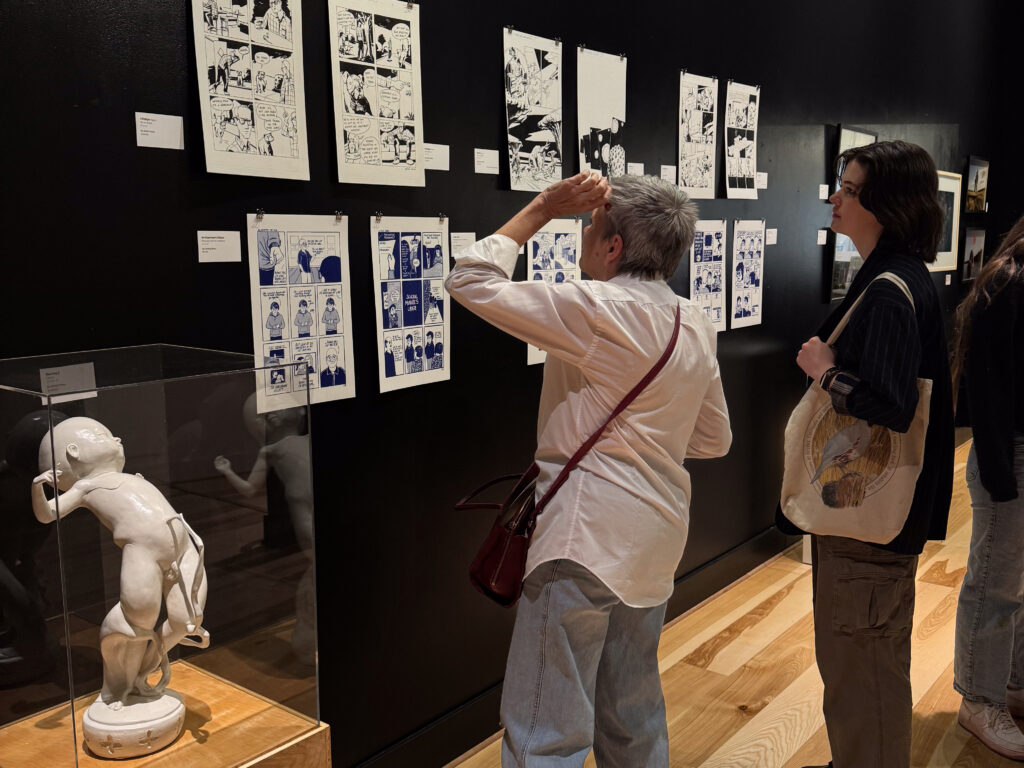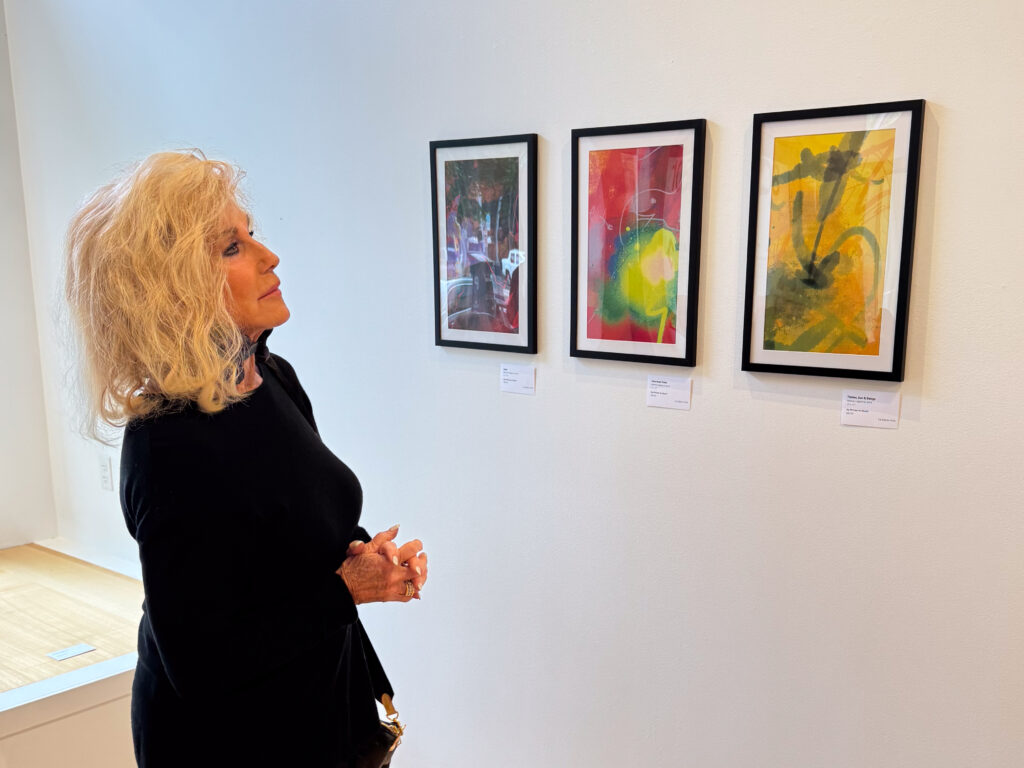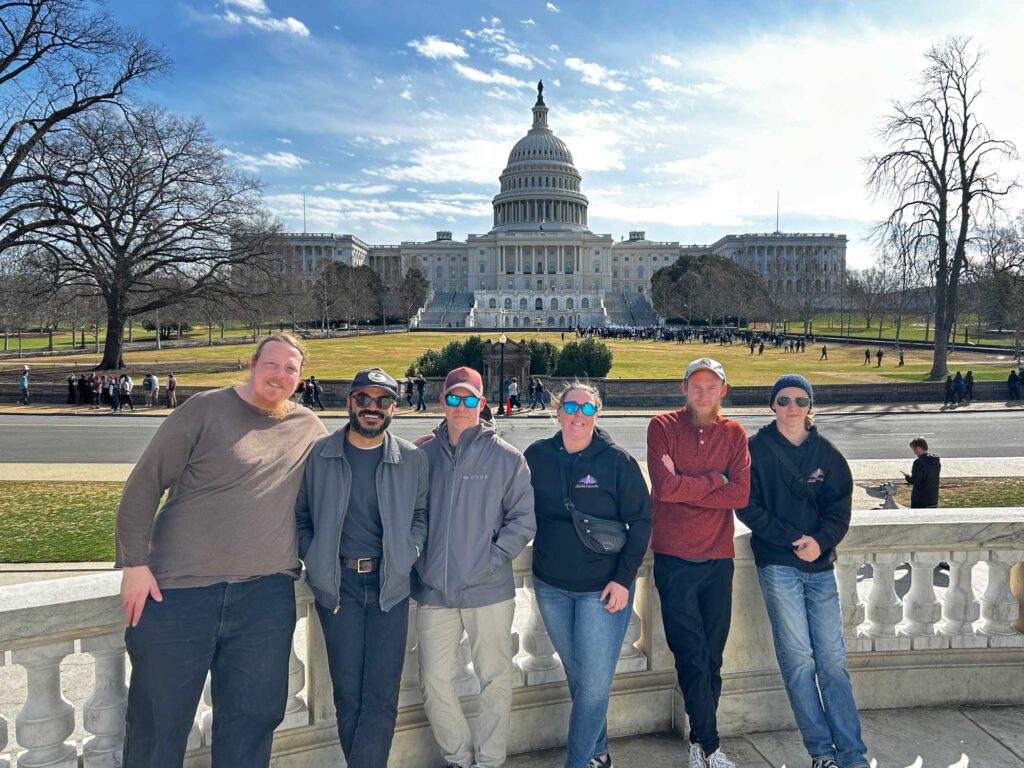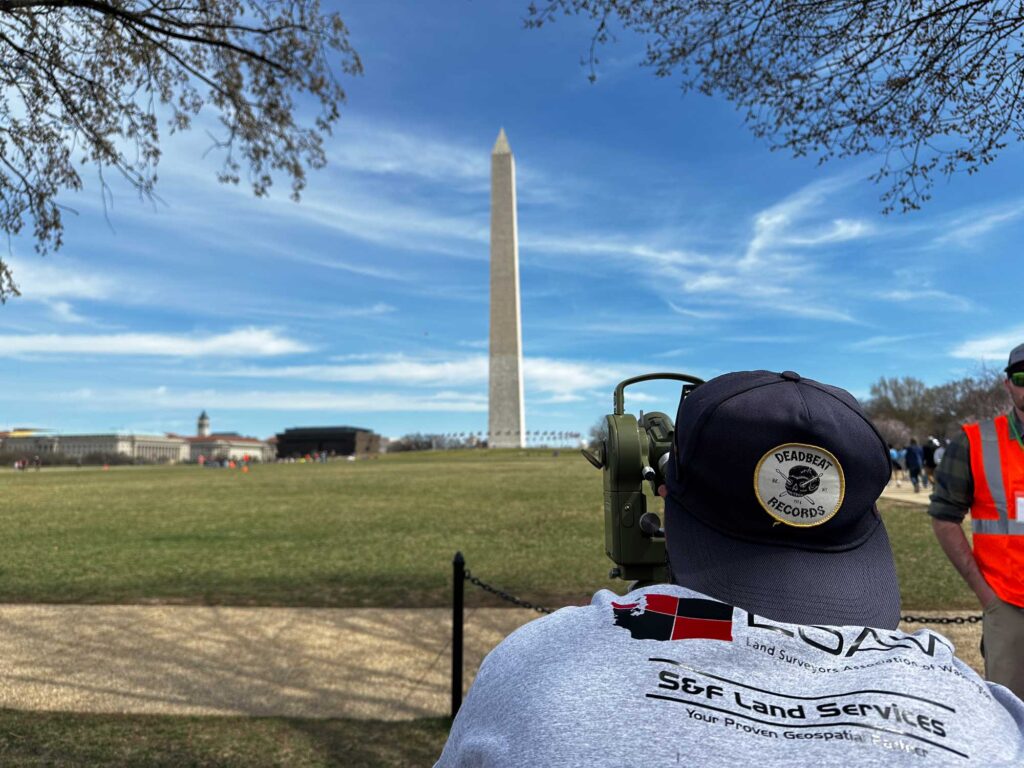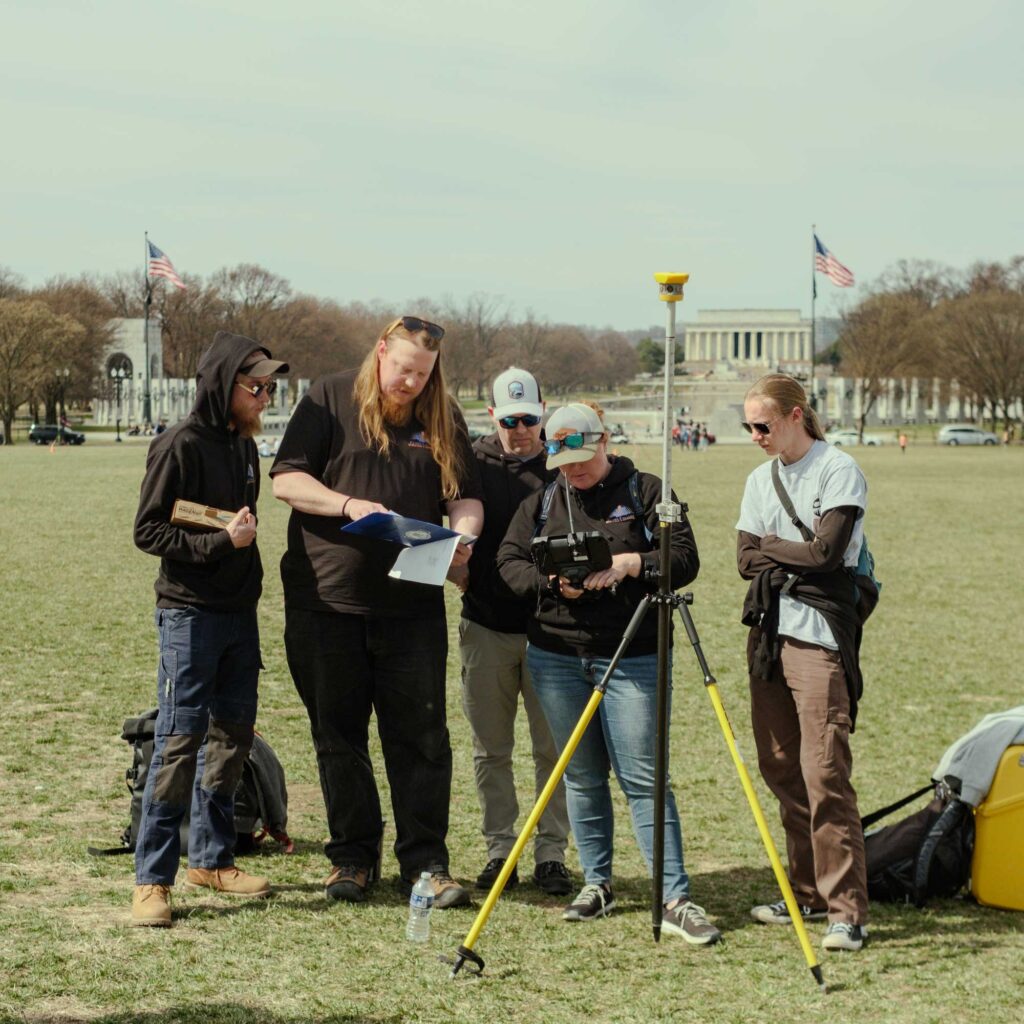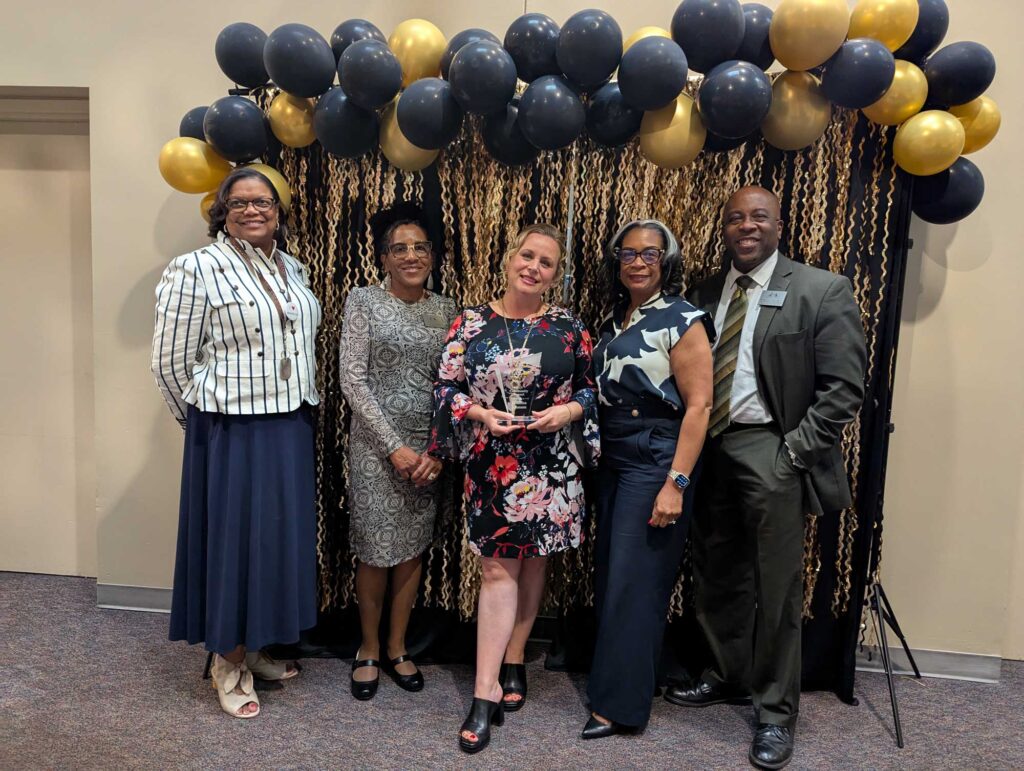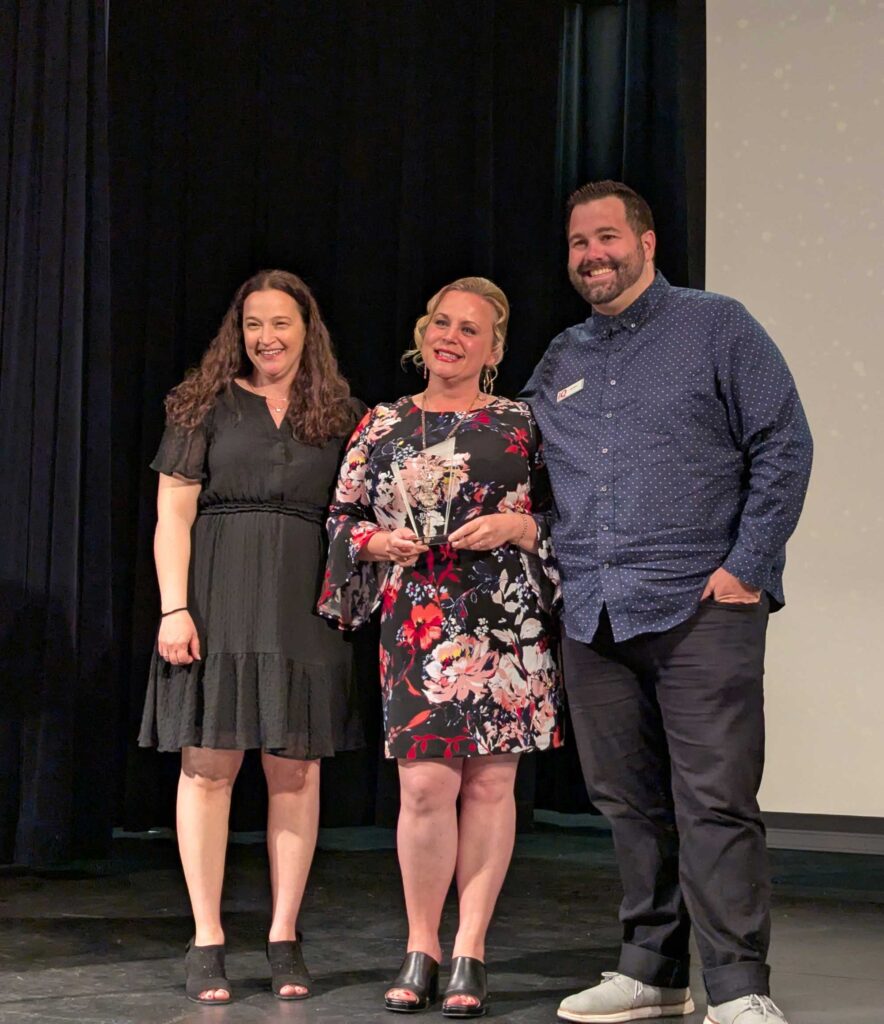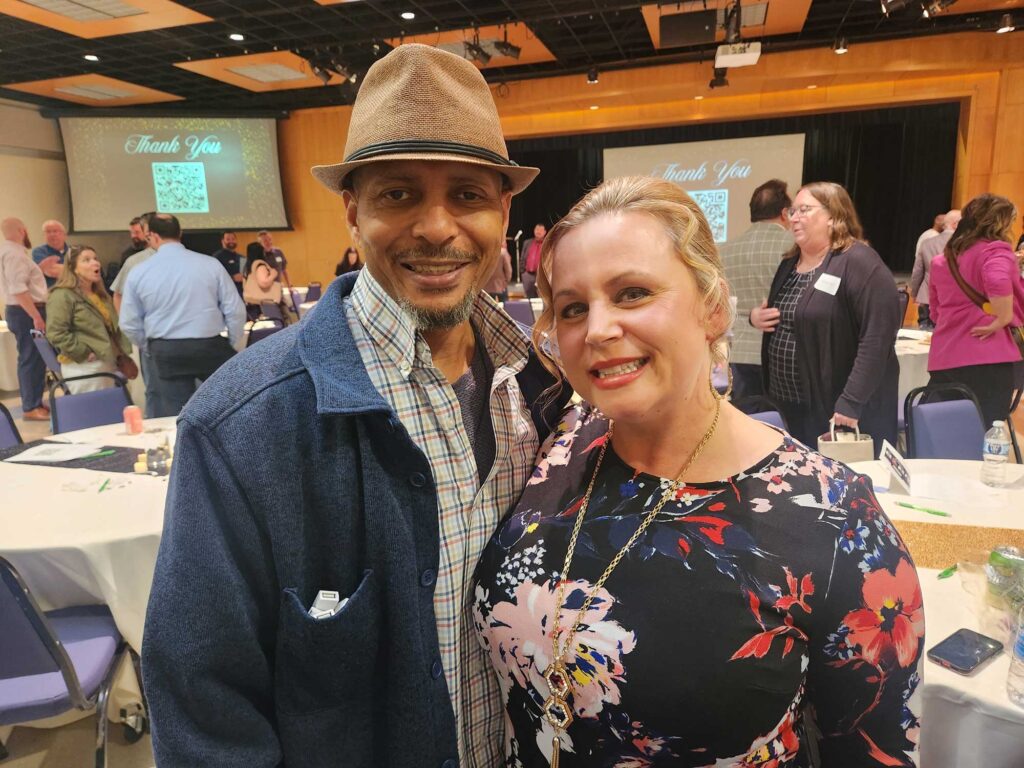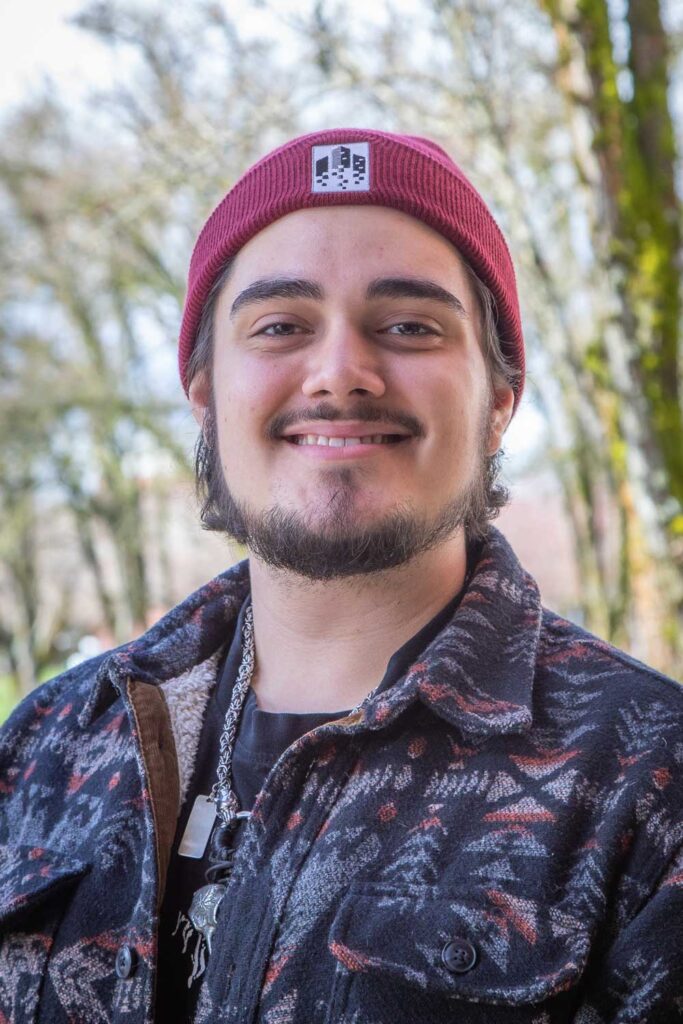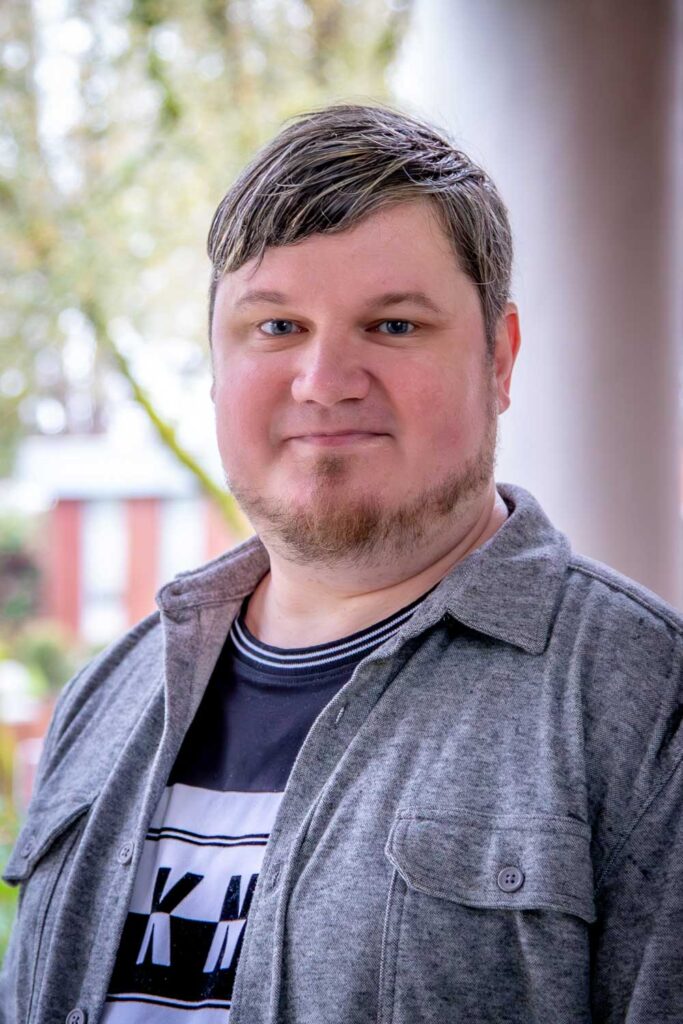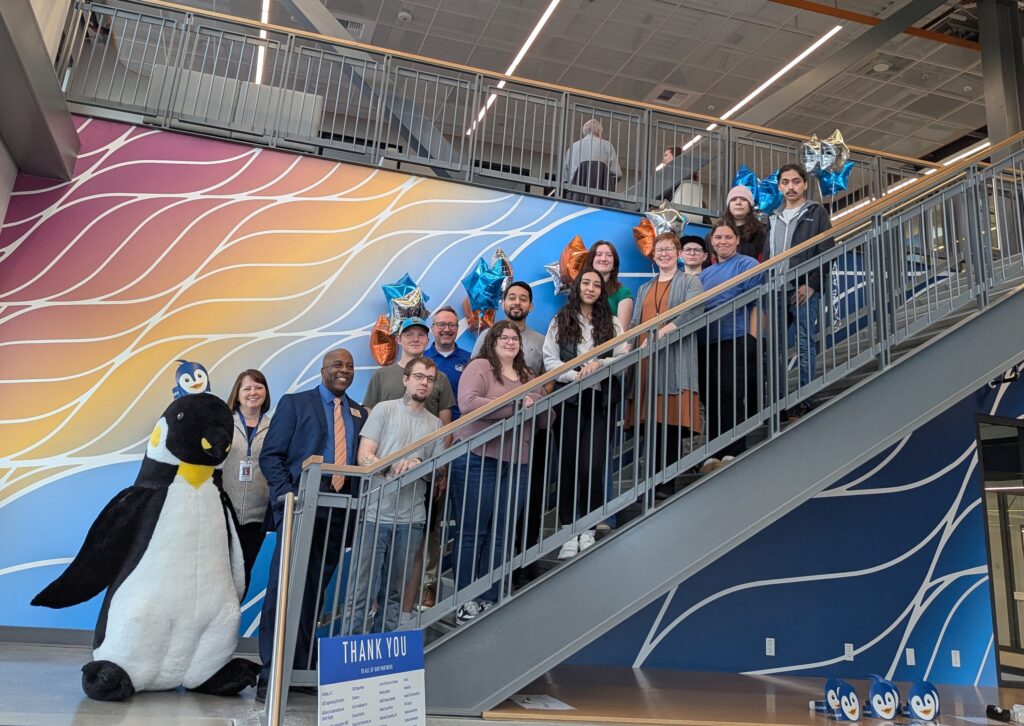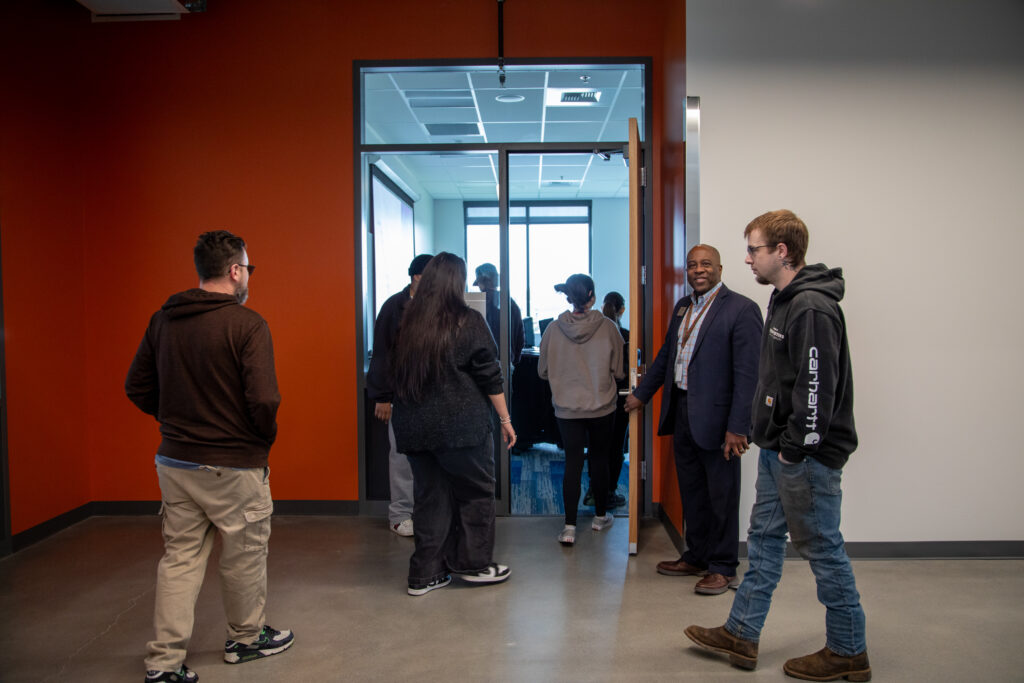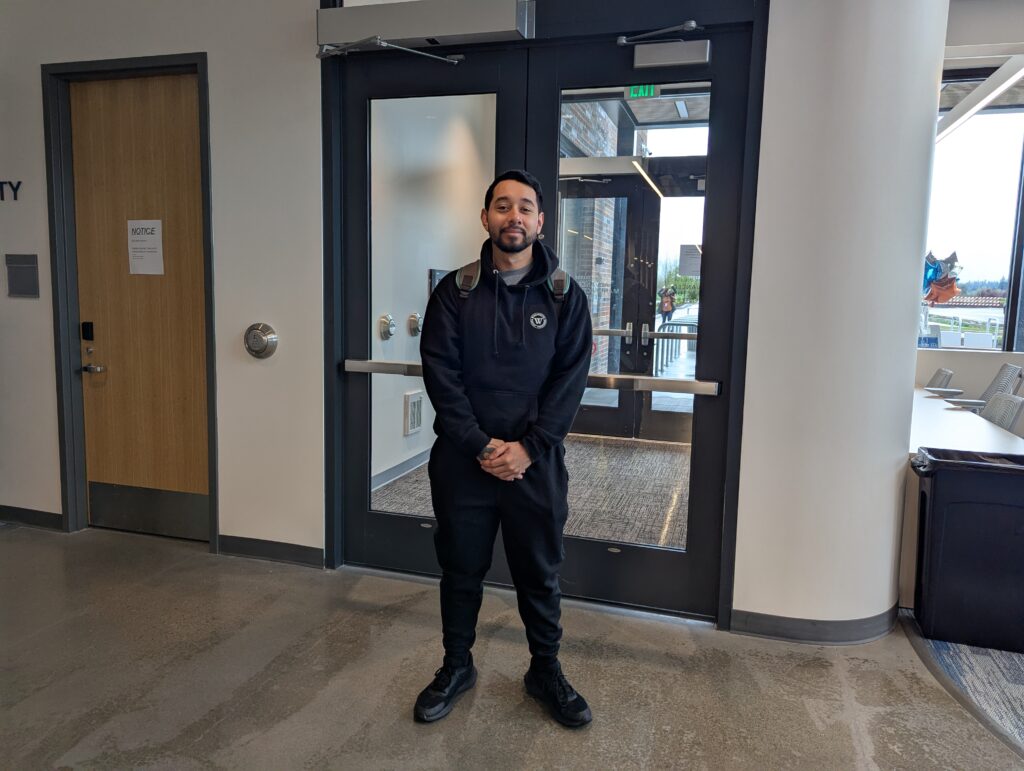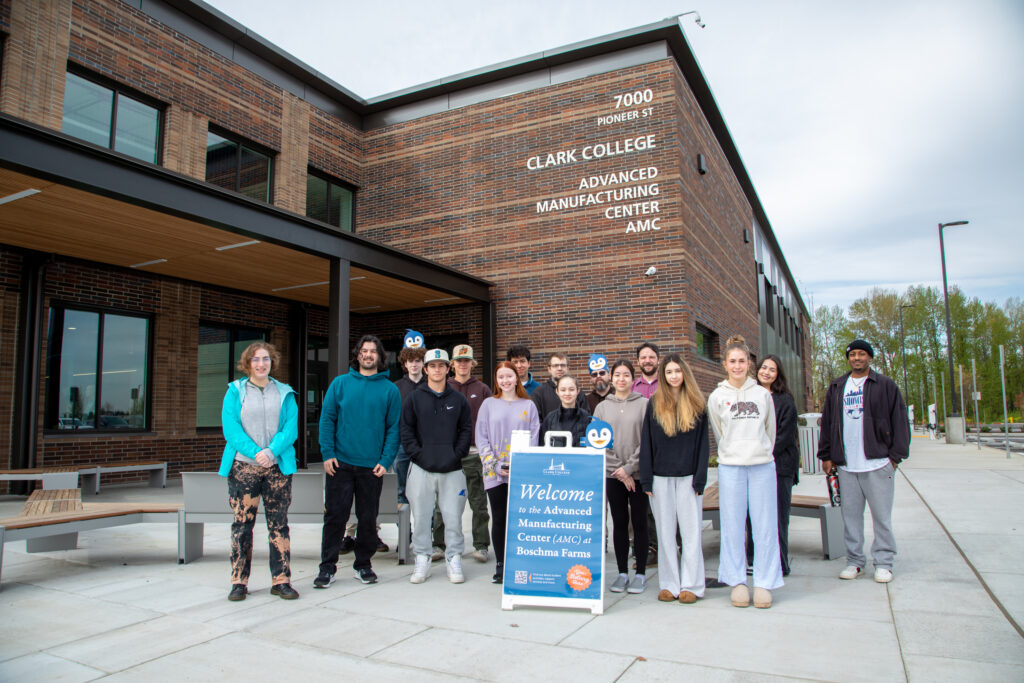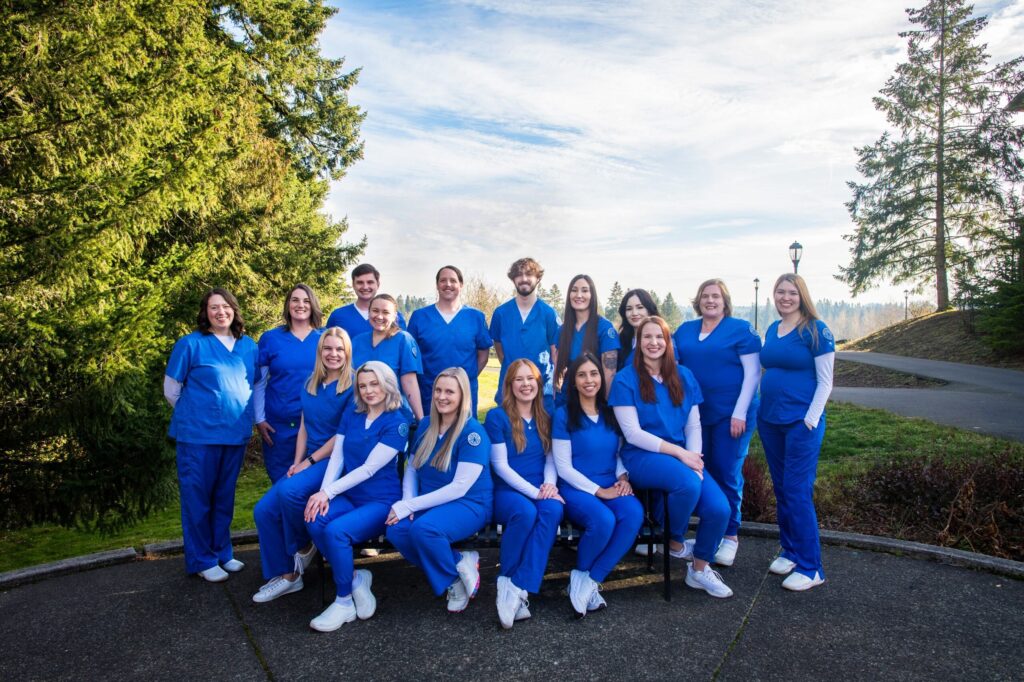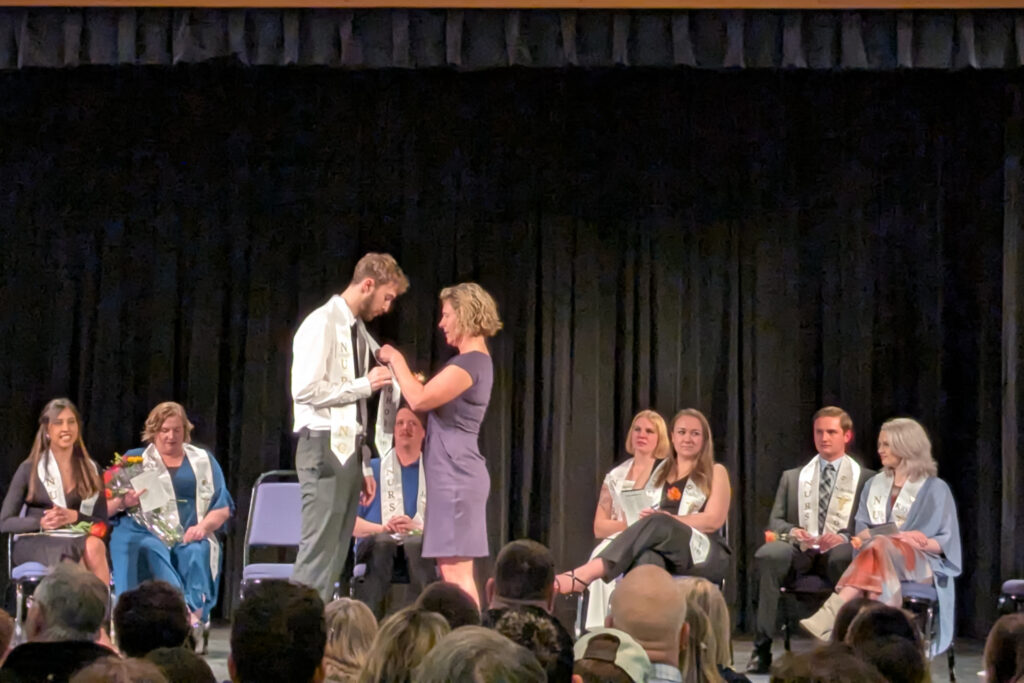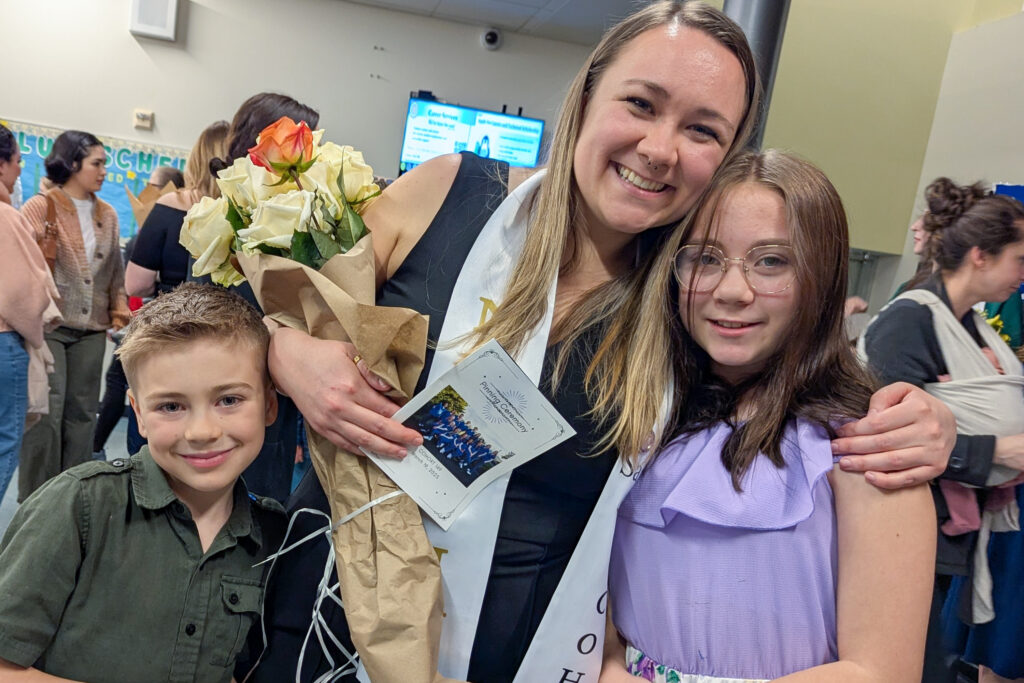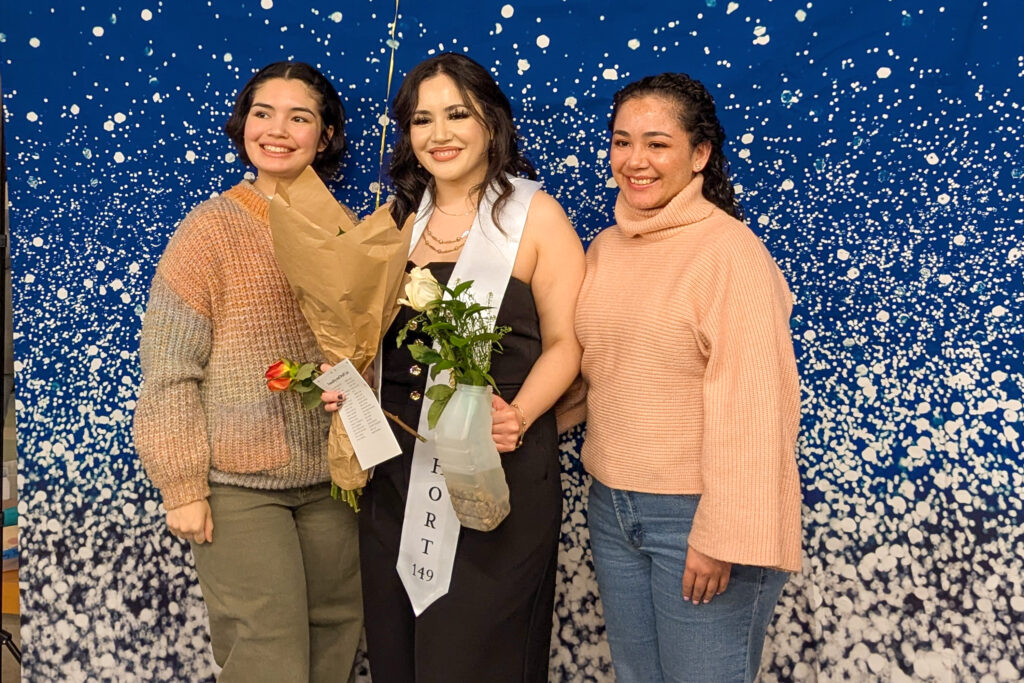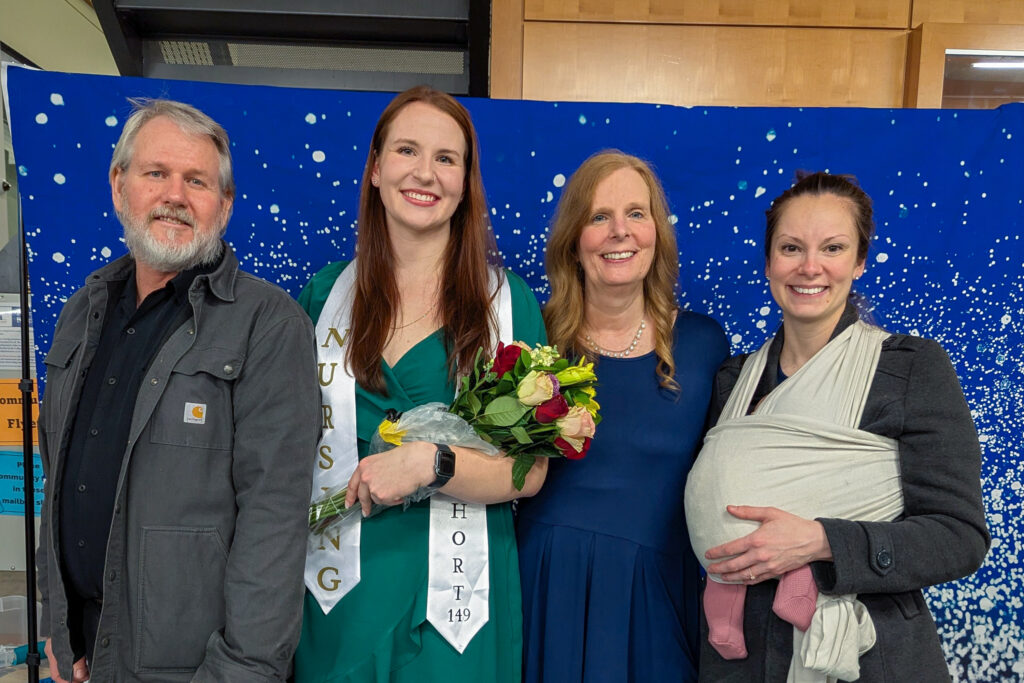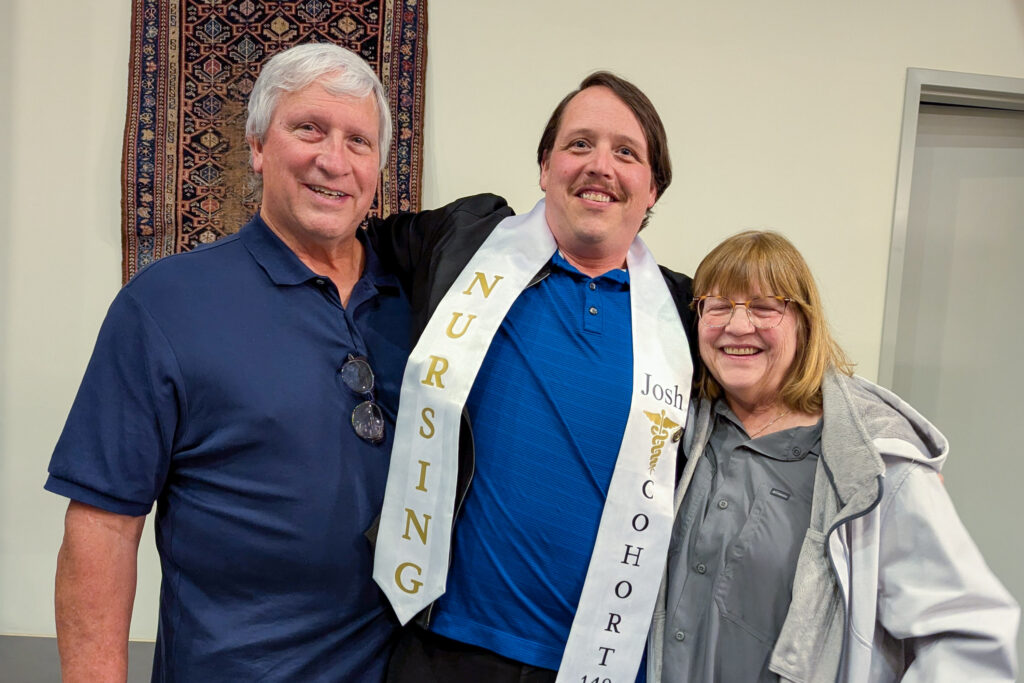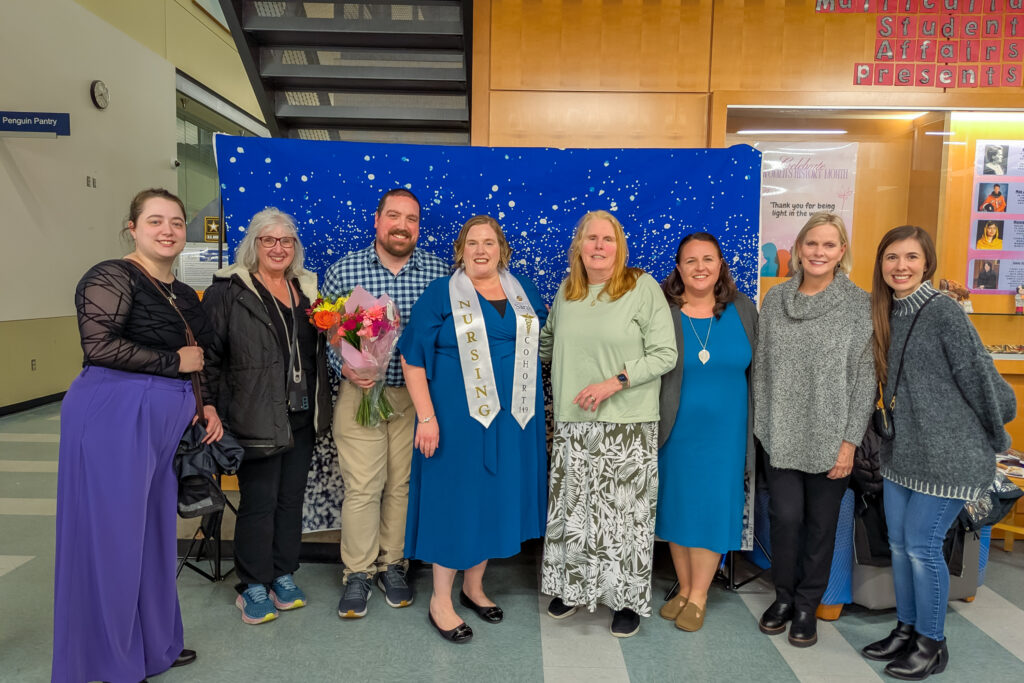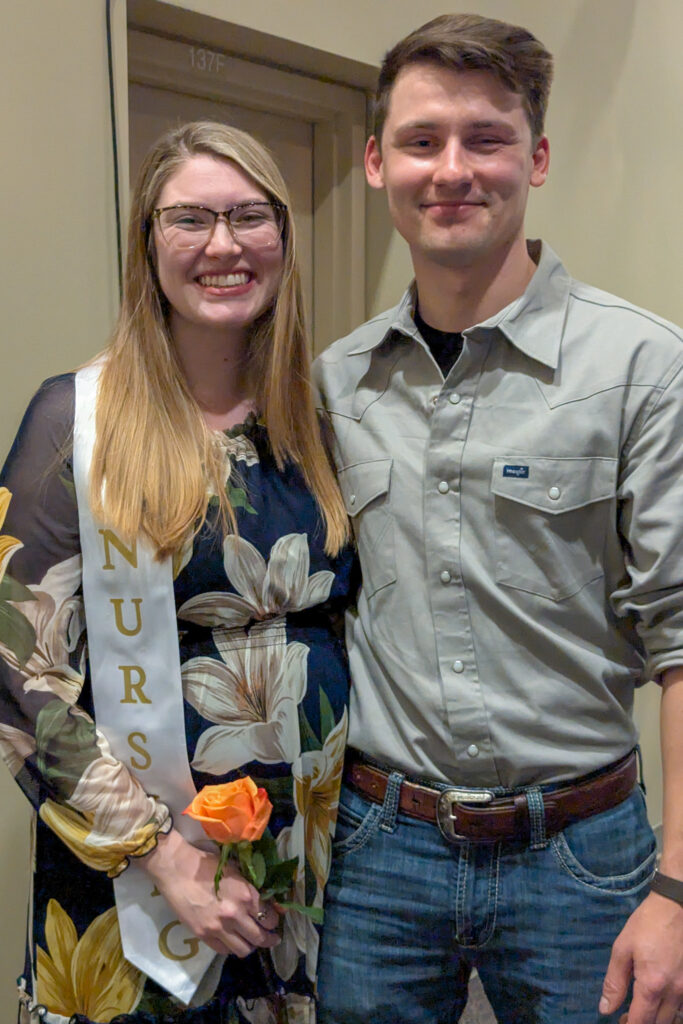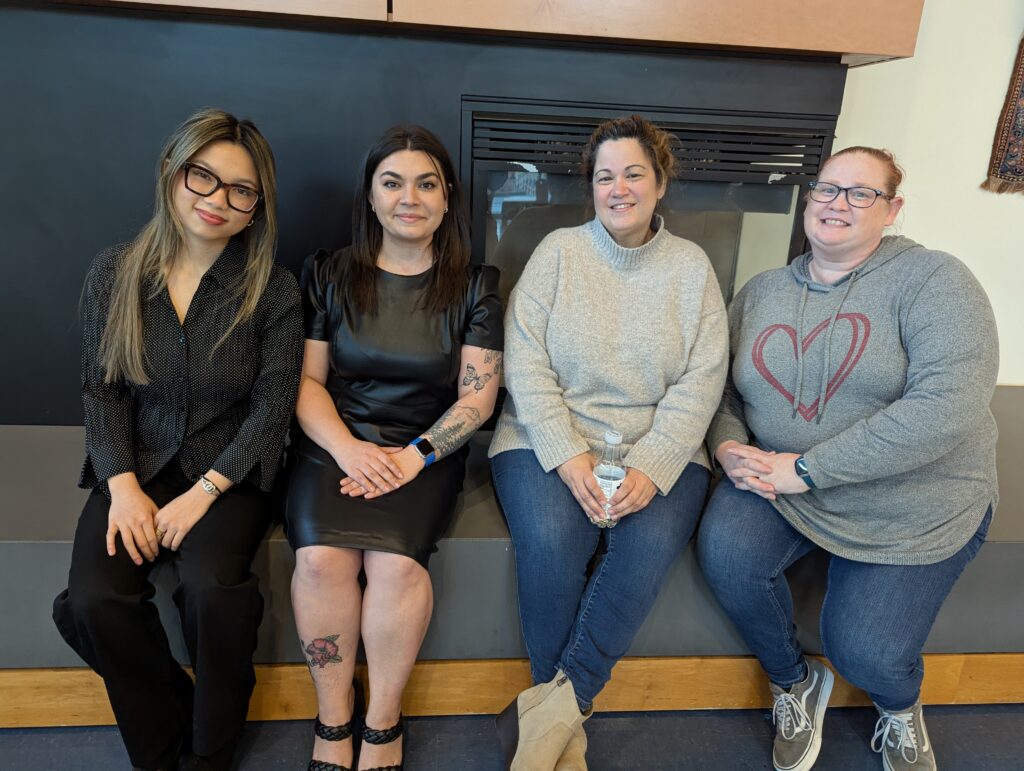Baguettes, Eclairs… Zines?
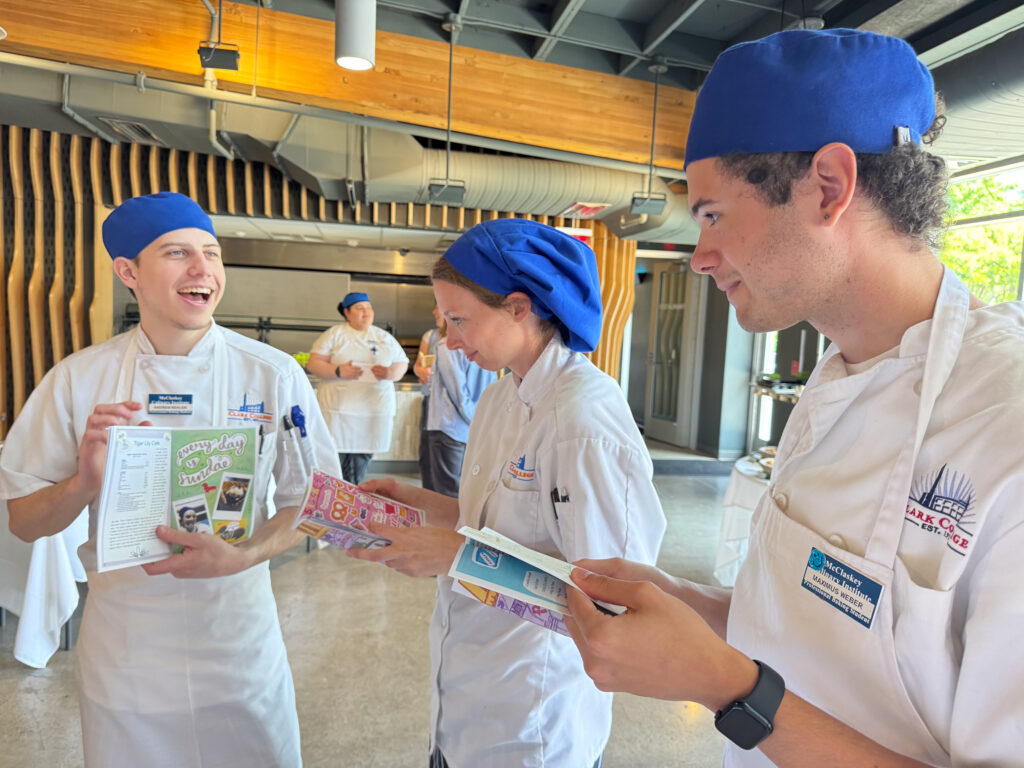
On Thursday, May 8, a line of people waiting for a taste of artisan treats wrapped around McClaskey Culinary Institute and into Gaiser Hall. The annual Baking Capstone, led by Chef Alison Dolder, is one of the biggest culinary events of the year.
Second-year baking students spent weeks testing recipes for their very own pop-up menus. One student created a fairy forest, pastries arranged on stumps, and red button mushrooms sprouting from the table. Another decorated eclairs like dachshunds. Yet another fused Mexican flavors with Viennoiserie, serving elote and concha flavored croissants.
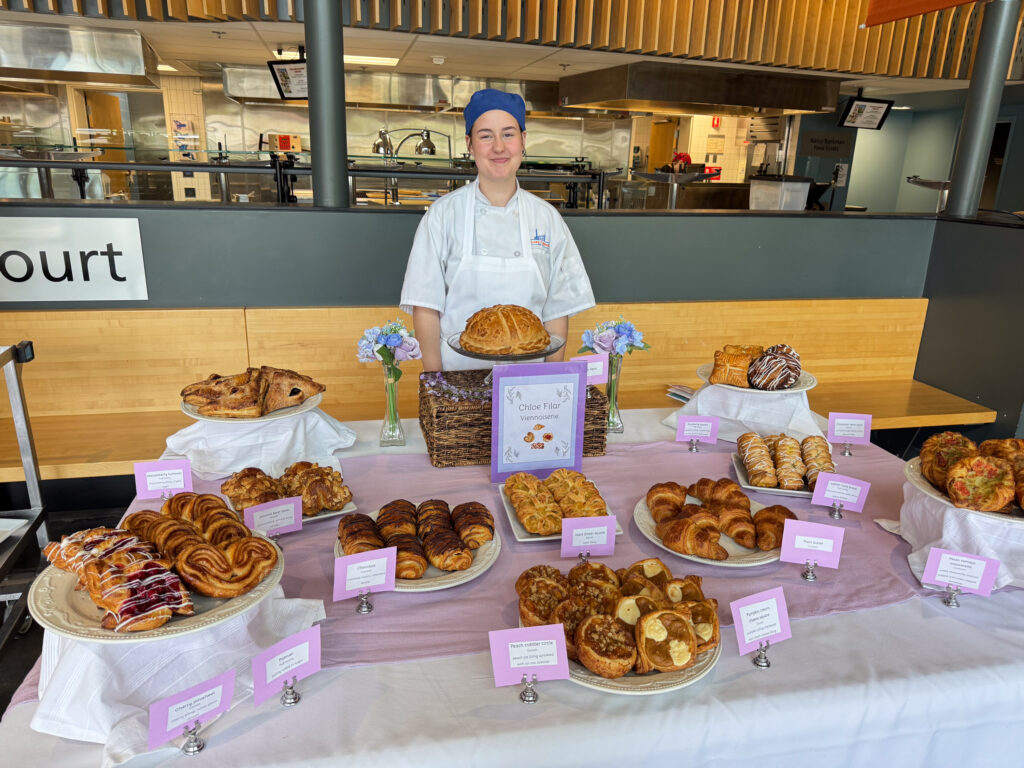

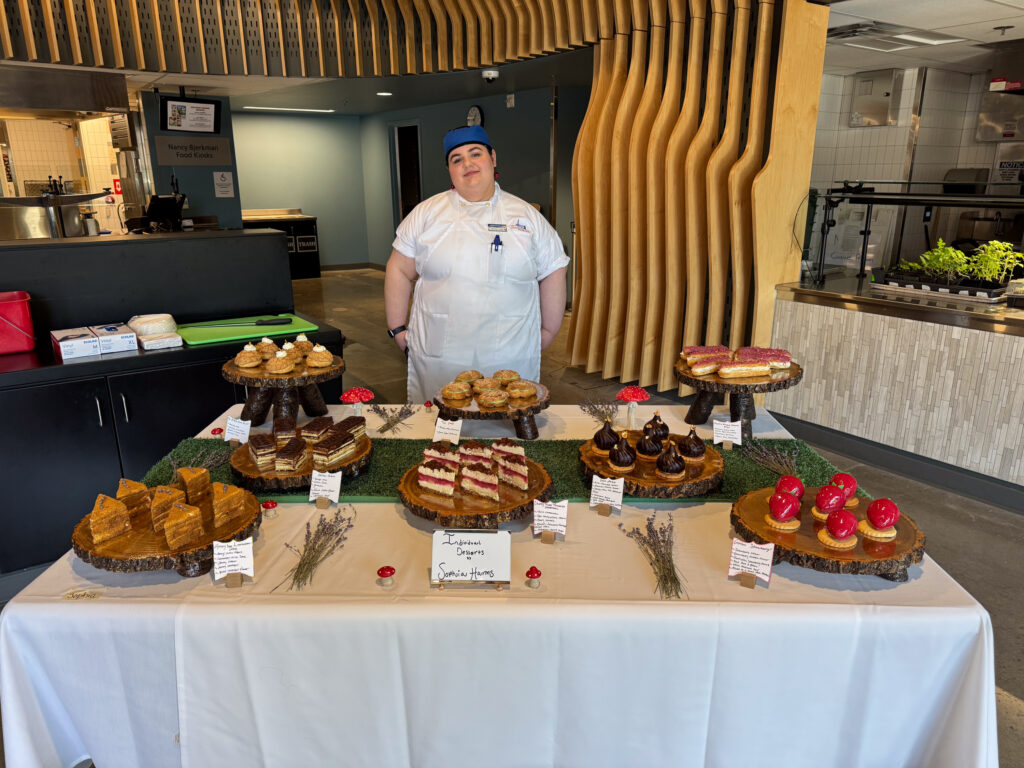

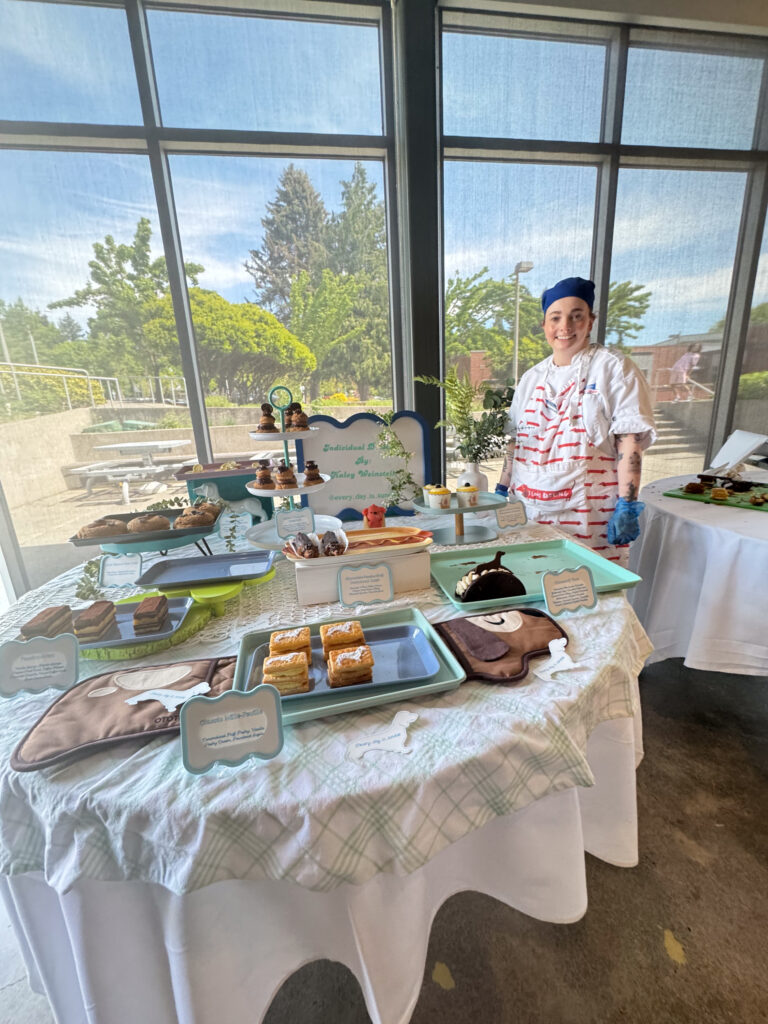
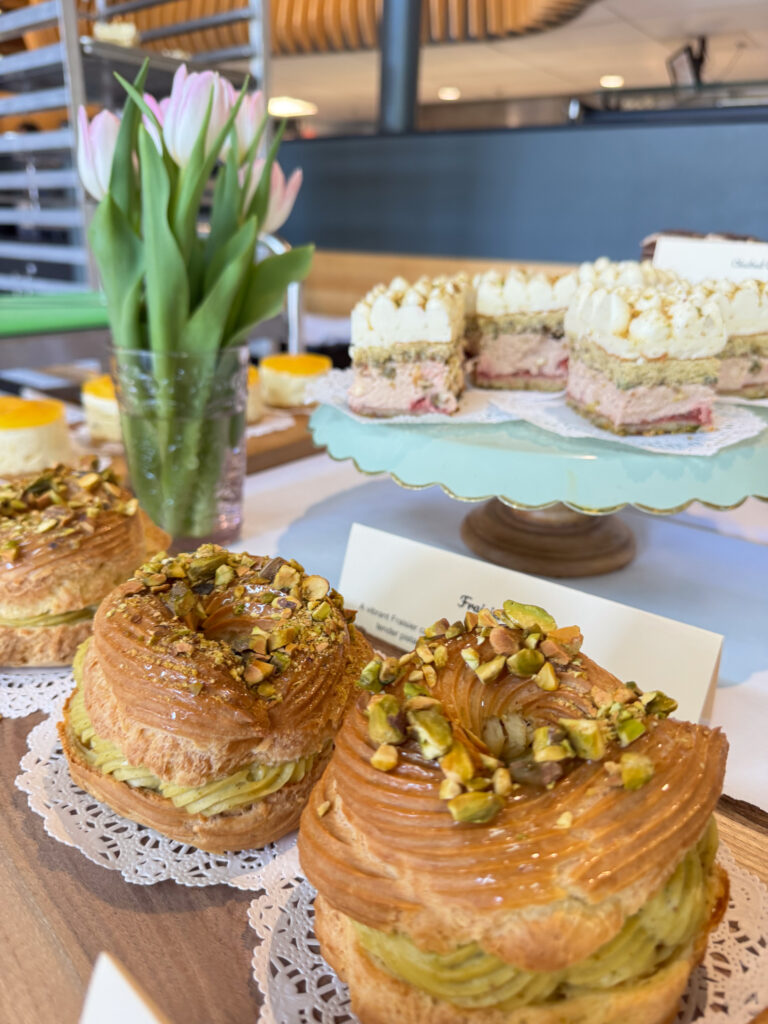

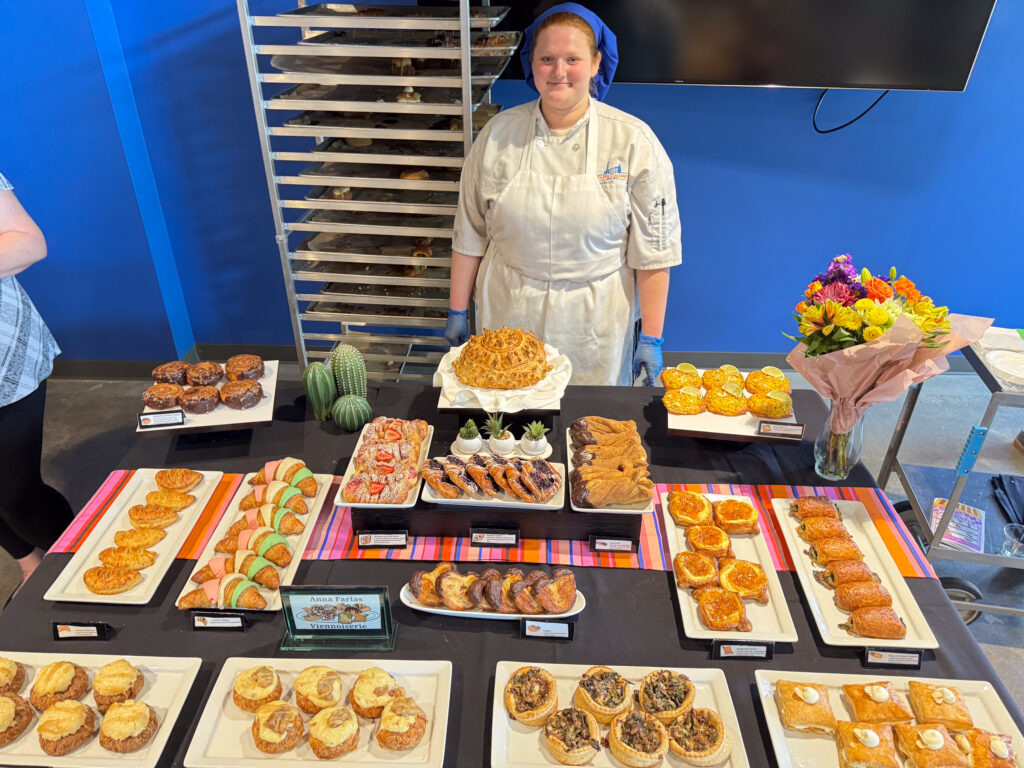
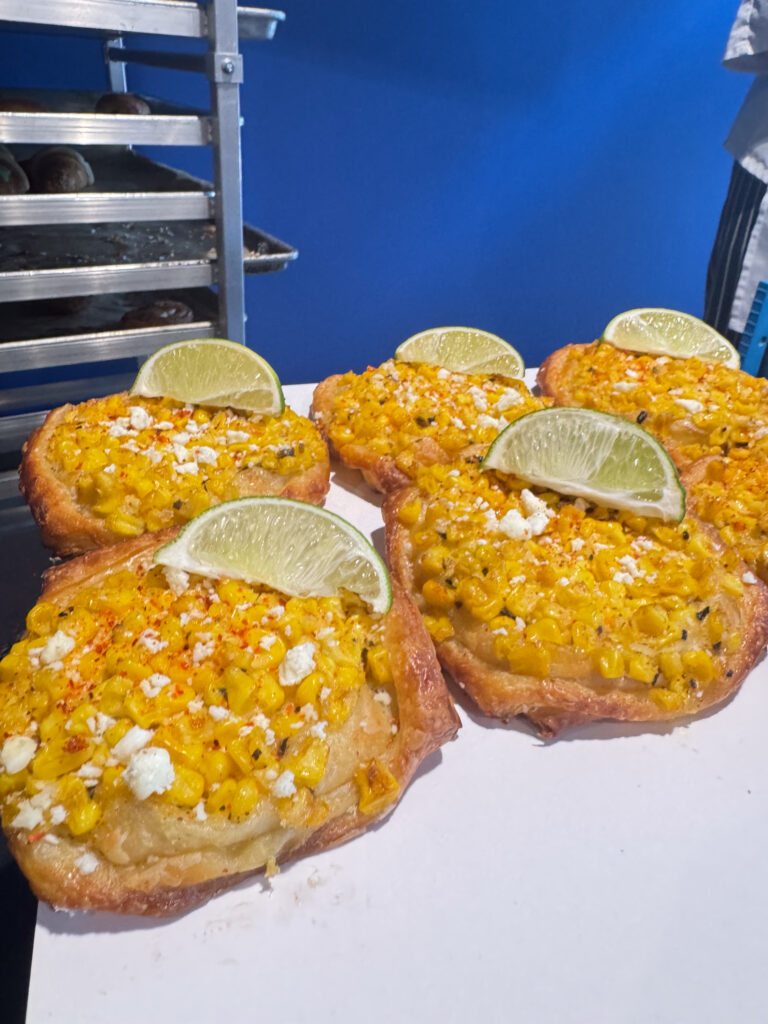
“I learned I’m more capable than I thought I was”
While stressful to take charge of their own pop-ups, meeting the challenge gave students confidence.
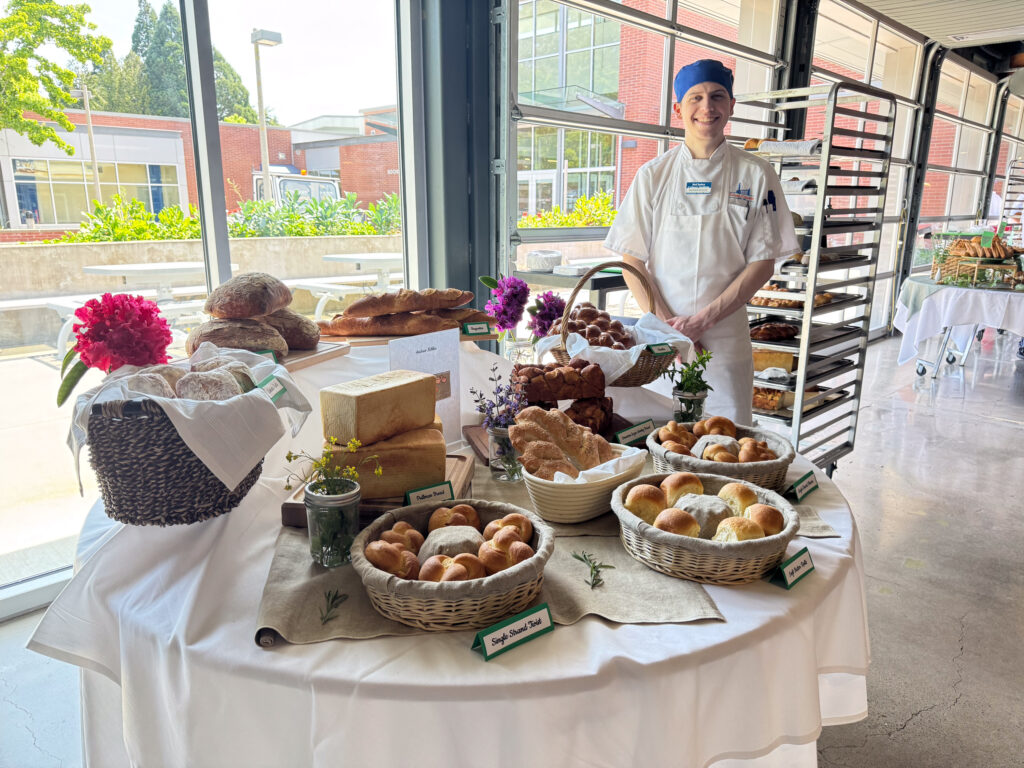
Student Andrew Kehler, above, who presented a table bursting with artisan breads in baskets and on bamboo cutting boards, said, “I learned I’m more capable than I thought I was. I was telling my classmates, “It’s freaking me out, it’s kind of scary…everything turned out perfectly fine.”
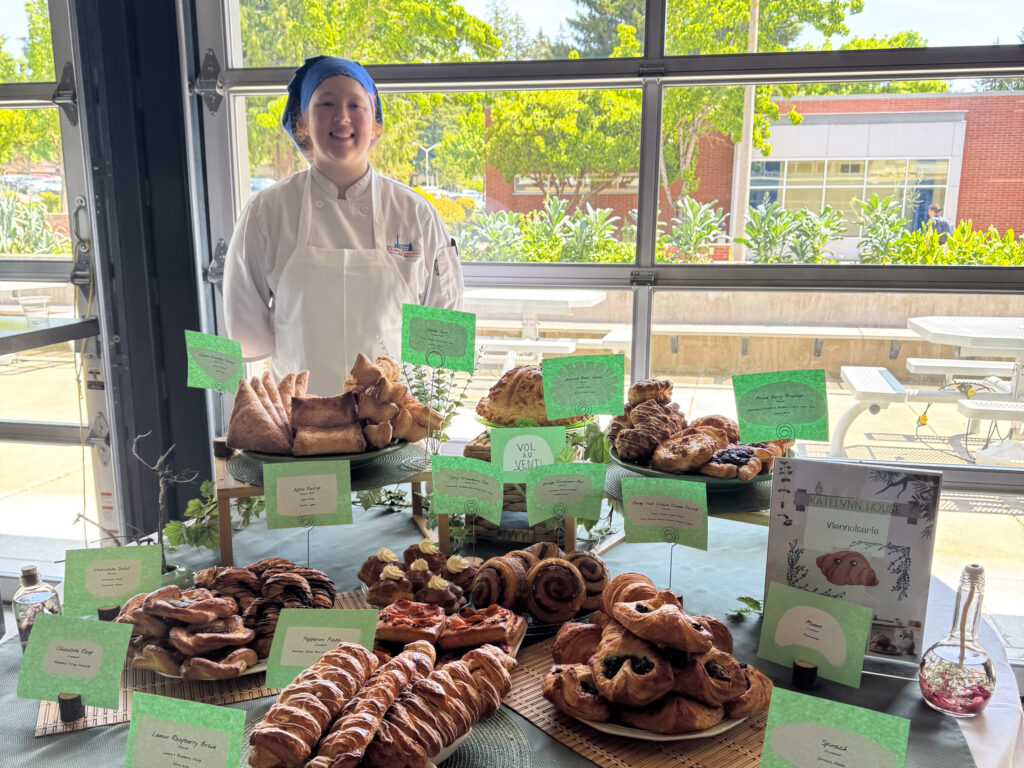
Katelynn House, above, who showed a variety of creative Viennoiserie, shared, “The first few weeks I was trying things out, practicing. Then, the last couple of weeks I really cracked down. Then today came along, and it was a ride. But I did finish on time, and it’s beautiful.”
Katelynn’s favorite bake? The orange cinnamon rolls.
It was clear how much Chef Melanie Hendry inspired the students. Kehler said, “I chose to do bread for my pop-up because it is one of the activities that most resonated with me in the bakery. Chef Melanie showed a passion for it, and it kind of rubbed off on me… I love that I can take my time with bread. You kind of get to know it more intimately… it is a lot of concentration, knowing what you’re doing… taking your time, being patient with it and working with it.”
Kehler was most proud of the cinnamon sugar monkey bread, which he said was a surprise that came together at the last minute.
Leaving a legacy with a cookbook zine
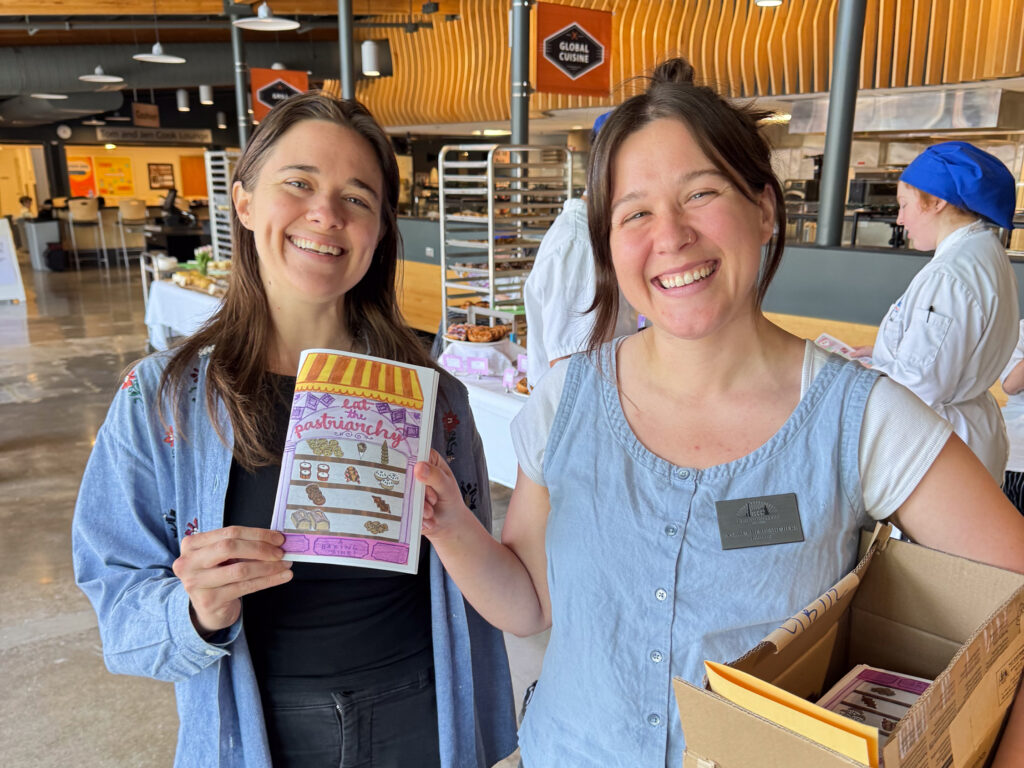
This year, Chef Melanie collaborated with librarians Andrea Berg and Katy Anastasi on a new idea: a cookbook zine. Over several months, the librarians hosted workshops guiding students to design uniquely colorful pages. Captivated, the students spent hours in the library gluing, cutting, and drawing pages with pop-up recipes, stories, jokes, and coloring pages.
The zine—titled “Eat the Pastriarchy”—inspired sprawling conversations about collaboration, legacy, creativity, and privacy.
A copy of the zine will be archived in the zine collection in Cannell Library, so anyone can sneak a peek at the students’ baking secrets.
Berg shared, “The library was excited to support and excited to feature the cookbook zine in our zine library as another way for these bakers to have a lasting legacy at Clark. We had so much fun working with the baking students, they were so creative and supportive of each other and were excited about the zine project as a way to celebrate their own work and inspire future generations of Clark bakers.”
When the librarians brought the finished zines to the capstone, the students immediately circled to rifle through the pages and see their work in print, giggling and showing their friends and family.
About Tod and Maxine McClaskey Culinary Institute
At the Tod and Maxine McClaskey Culinary Institute at Clark College, we are building on nearly 60 years of excellence in culinary education to offer programs that prepare students to meet the growing demand for culinary and hospitality professionals. Our programs emphasize the mastery of the fundamentals as well as management and critical thinking skills to prepare students for a range of career opportunities.
Working in a new state-of-the-art facility, students gain real-world experience in high-volume food production, service, and retail settings. The Culinary Institute also creates a community space on campus that highlights the growing influence of food on our culture while giving students valuable hands-on experience in a production kitchen, retail bakery, food kiosks, and a full-service dining room.
Photos: Clark College/Carly Rae Zent
